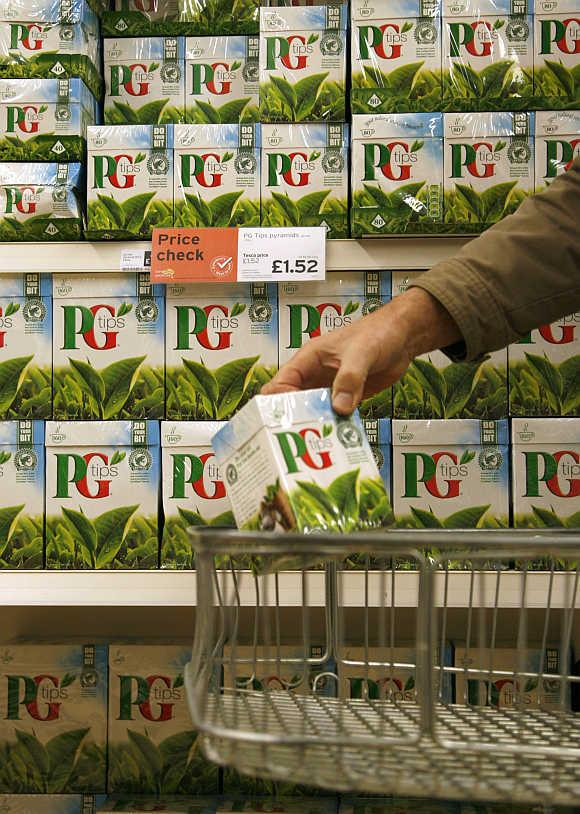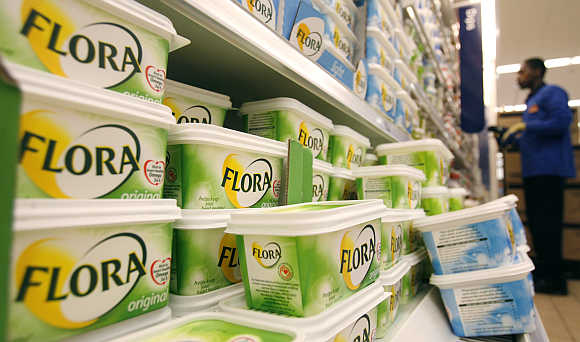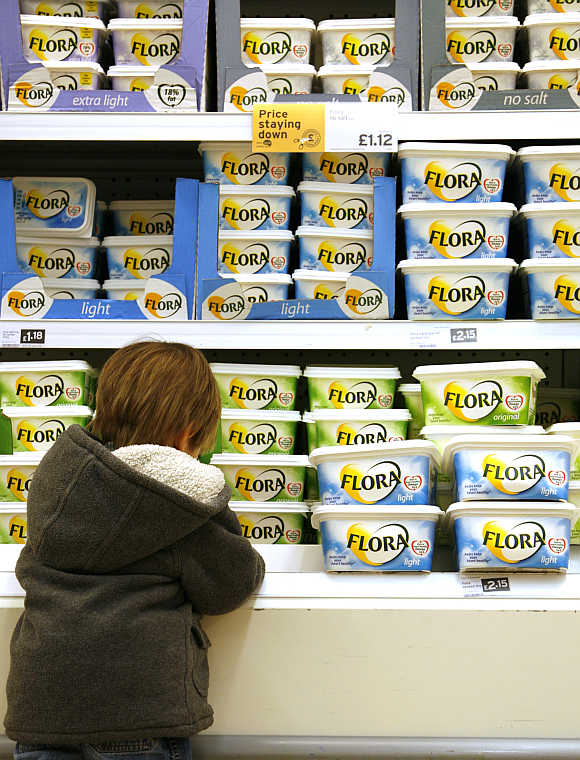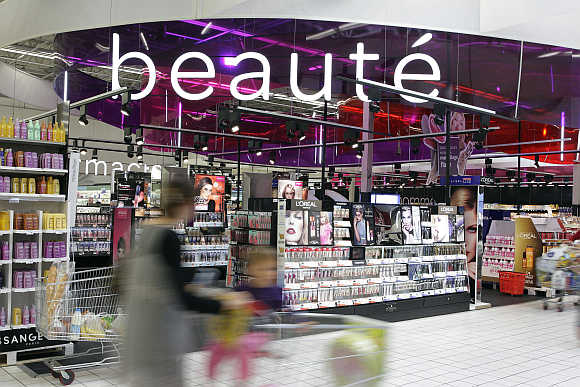 | « Back to article | Print this article |
Unilever sharpens focus on emerging markets
Global consumer goods giant Unilever is sharpening its focus on emerging markets. By the end of this decade, the company plans to have 75 per cent of its total revenue to come from emerging markets, up from the current 53 per cent.
Unilever, which competes with its arch-rival, Procter & Gamble, had posted revenues of 46.5 billion euros in 2011. The company has also spelt out an ambitious vision to double its business.
Unilever CEO Paul Polman, on a visit as part of his South Asia tour, said that over the past four years, as much as four billion euros was invested in aspiring markets, double the earlier number.
Click NEXT to read more...
Unilever sharpens focus on emerging markets
"It is here (that) innovations are happening, and we clearly want to be an emerging markets player. We are taking innovations from countries like India to global markets and that strategy will continue to roll out rapidly," Polman told a select media gathering at the company's new technology innovation centre in Bangalore.
According to him, growth has rapidly shifted to emerging markets, and has caught many players off guard.
"It has surprised many. We are blessed to have (close to) 60 per cent of our revenues in the aspiring markets and we intend to back these markets further. We need to respond to the demand with agility, with innovation and with reliability," he said.
Click NEXT to read more...
Unilever sharpens focus on emerging markets
Unilever's Indian arm, Hindustan Unilever Ltd, has been performing well, reflected in the 41 per cent spike in its share price during the past one year.
"The growth has accelerated in India in the recent past. Innovations are getting bigger and we are quickly launching brands and with scale. It all boils down to innovation, differentiation and high level of investment in picking the right people," said Harish Manwani, HUL chairman and Unilever COO.
Next year, Unilever will open a global training centre in Singapore as part of its increased focus on developing manpower. This will be among Unilever's largest centres for training.
Click NEXT to read more...
Unilever sharpens focus on emerging markets
The company, known for its Fair & Lovely cosmetic cream, Rin and Surf detergent powders, Kissan jams, Lipton tea and a whole host of other products, is focusing more on differentiation and responding quickly to regional brands and also to the rising competition from P&G.
"Our global business is growing at twice the rate of our competitor, even as we added 10 billion euros in the last three years. Our business model is being proven and we are constantly taking out costs to the tune of 1.4 billion euros on an annual basis to compete with regional and global brands," said Polman.
In the recent past, P&G has also increased its focus rapidly on the emerging markets.
Click NEXT to read more...
Unilever sharpens focus on emerging markets
"I welcome competition. We need more players to grow in the emerging markets. Our model, however, seems to be working better," he said.
Polman also passionately dwelled in detail about the work in progress over growing the business with sustainability.
"We want to double the size of our business, while reducing our overall environmental impact, including sourcing, consumer use and disposal.
"We are committed to doing what we can to improve health, nutrition and hygiene, with a target to help more than a billion people take action to improve (their) health and well-being, as well as sourcing all our agricultural raw materials on a sustainable basis by 2020," he said.
"Yes, we sell soaps, but along it comes respect and dignity," said Manwani.





